We may not have the course you’re looking for. If you enquire or give us a call on +1 6474932992 and speak to our training experts, we may still be able to help with your training requirements.
Training Outcomes Within Your Budget!
We ensure quality, budget-alignment, and timely delivery by our expert instructors.
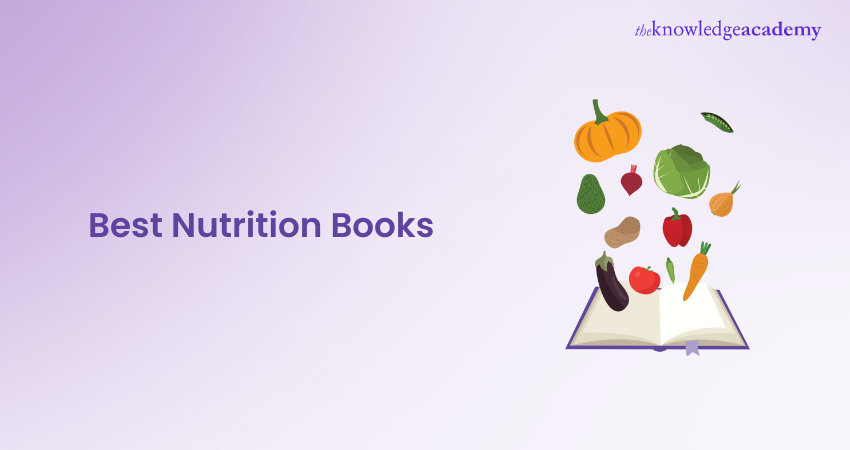
Are you looking to improve your health through better nutrition? Our blog to the Best Nutrition Books offers expert advice, practical tips, and science-backed insights to help you make informed choices. Whether you're just starting your wellness journey or are a seasoned health enthusiast, these books provide the tools and knowledge you need to nourish your body and achieve lasting vitality.
Table of Contents
1) Best Nutrition Books for beginners
2) Best Nutrition Books for Nutritionists
3) Books Honourable mentions
4) Conclusion
Best Nutrition Books for beginners
Starting with a good Nutrition Book is the first bite in a feast of lifelong wellness. For those new to the world of Nutrition, starting with the right book is crucial. Here are some of the Best Nutrition Books tailored for beginners:
In Defense of Food: An Eater’s Manifesto by Michael Pollan
This revolutionary book questions the conventional wisdom of nutritionism and western diet. In this book, Pollan explores the connection between these two and how nutritionism has negatively impacted the way Americans consume their food.
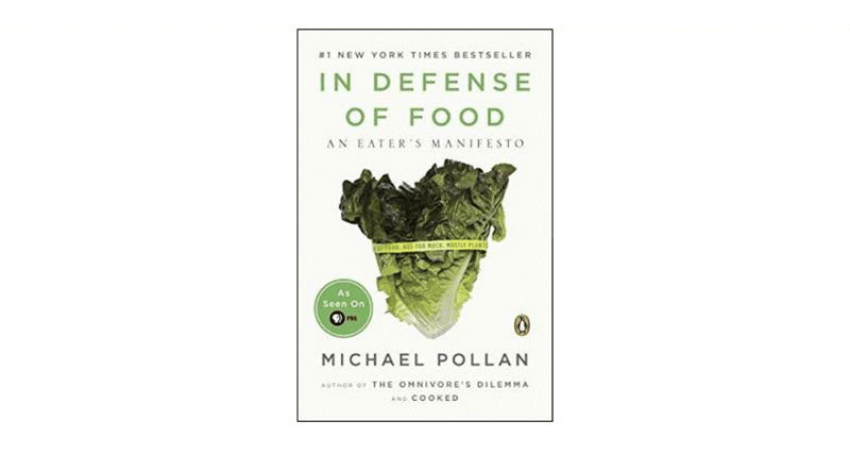
This book addresses the pitfalls of modern diets. It advocates for natural, whole foods. In Defense of Food: An Eater’s Manifesto is a must-read for beginners who want to eat more consciously.
Eat, Drink, and Be Healthy: The Harvard Medical School Guide to Healthy Eating by Walter Willett
This book offers a science-backed approach to healthy eating, drawing on extensive research from one of the world’s top medical institutions. Willett challenges common misconceptions about diet and nutrition in the book, providing practical guidelines for a balanced and health-promoting lifestyle.
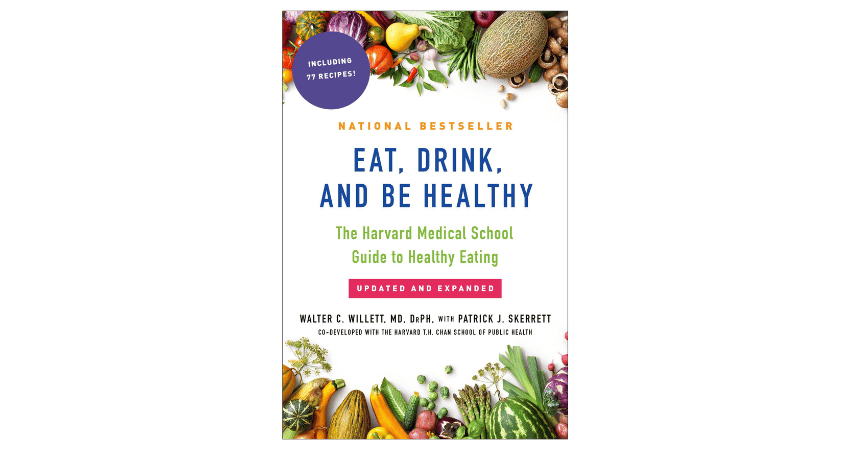
He emphasises the importance of whole foods, healthy fats, and plant-based diets while debunking myths surrounding fad diets and outdated nutritional advice.
The No Meat Athlete Cookbook by Matt Frazier
The No Meat Athlete Cookbook, by Matt Frazier, advocates plant-based eating for athletes and active individuals. Frazier, a seasoned endurance athlete, provides over 125 wholesome, nutrient-dense recipes designed to fuel performance and promote recovery.
The cookbook emphasises easy-to-make, whole-food meals that support energy and endurance without relying on animal products.
The Omnivore's Dilemma: A Natural History of Four Meals by Michael Pollan
This book by Michael Pollan, offers a brilliant and eye-opening examination of the often-overlooked but crucial aspects of eating in America.

Pollan divides the book into three parts, each dedicated to one of the vital food chains that sustain us: industrialised food, organic or alternative food, and food acquired through hunting, gathering, or personal gardening.
Salt Sugar Fat: How the Food Giants Hooked Us by Michael Moss
This book, delves into the ways the processed food industry has used sugar, salt, and fat to manipulate consumer cravings and drive sales.

Moss uncovers how major food corporations, armed with sophisticated research, have engineered products to maximise addiction, often at the expense of public health.
Clean Eating for Beginners by Tosca Reno
Clean Eating for Beginners by Tosca Reno is a practical introduction to the clean eating lifestyle, focusing on whole, unprocessed foods to promote health and wellness. Reno offers easy-to-follow guidance on transitioning to a cleaner diet, with meal planning, grocery shopping, and food preparation tips.
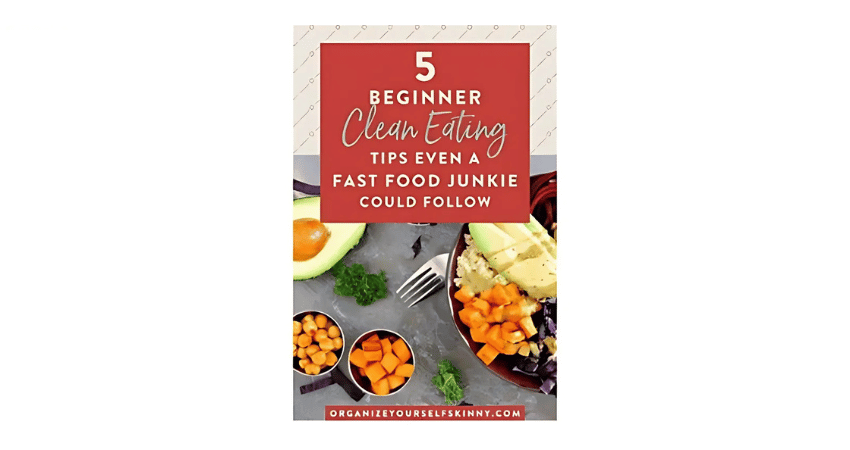
The book includes simple, nutritious recipes that prioritise fresh ingredients, free from artificial additives and refined sugars.
What to Eat by Marion Nestle
What to Eat, by Marion Nestle, helps readers navigate the often confusing world of food choices. Nestle, a respected nutritionist and public health advocate, offers valuable guidance on how to make informed decisions about what to eat by decoding food labels, marketing tactics, and industry influence.
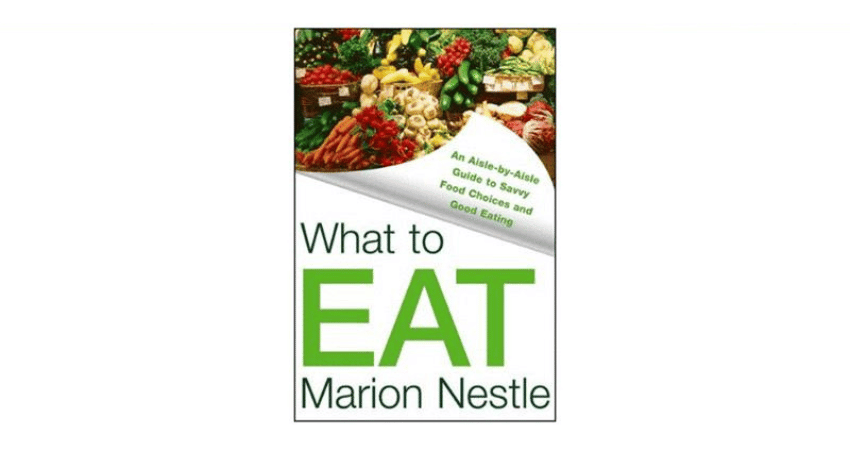
She examines various food groups, from produce to processed foods, and discusses their nutritional value, environmental impact, and role in a healthy diet.
The Skinnytaste Cookbook: Light on Calories, Big on Flavor by Gina Homolka
The Skinnytaste Cookbook offers a broad spectrum of recipes, from breakfast to dinner and snacks, all of which prioritise fresh ingredients and balanced nutrition.

With an emphasis on portion control and intelligent ingredient swaps, Homolka’s recipes are ideal for anyone looking to enjoy tasty meals while maintaining a healthy lifestyle.
Take charge of your health! Join us in Healthy Lifestyles Training and cultivate lasting habits for success!
Nutrition for Dummies by Carol Ann Rinzler
Nutrition for Dummies simplifies the often complex subject of nutrition. Written in an accessible style, the book breaks down essential concepts about nutrients, vitamins, and minerals, offering valuable guidance on maintaining a balanced diet for optimal health.
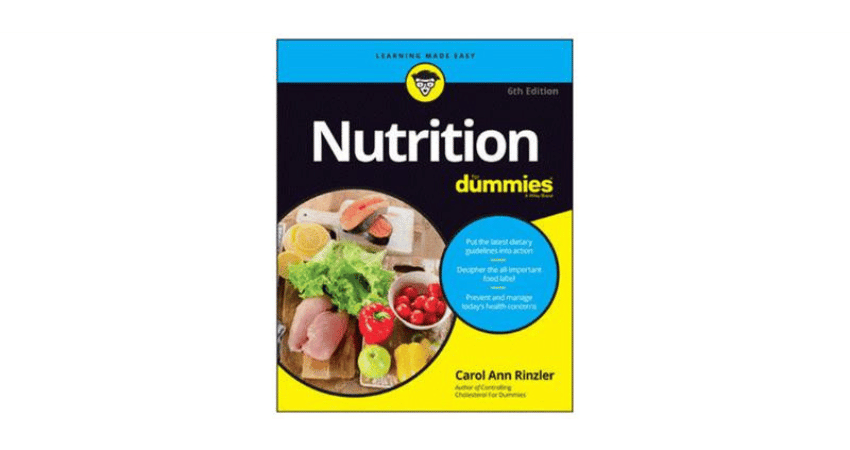
Rinzler covers critical topics such as portion control, understanding food labels, managing weight, and making informed choices about fats, carbohydrates, and proteins.
The 4-Hour Body: An Uncommon Guide to Rapid Fat-Loss, Incredible Sex, and Becoming Superhuman by Timothy Ferriss
The 4-Hour Body offers a bold, unconventional approach to optimising physical performance, health, and well-being. Drawing from personal experiments and expert interviews, Ferriss provides strategies for rapid fat loss, muscle gain, and enhanced sexual performance, among other body-hacking tips.

The book covers many topics, including diet, exercise, and sleep, focusing on maximising results in minimal time.
The Nutrient Bible by Henry Osiecki
This book is an in-depth guide to understanding the role of nutrients in maintaining health and preventing disease. Written by a biochemist and nutrition expert, the book explores the functions of vitamins, minerals, and other essential nutrients, providing detailed information on their benefits, recommended dosages, and potential therapeutic uses.
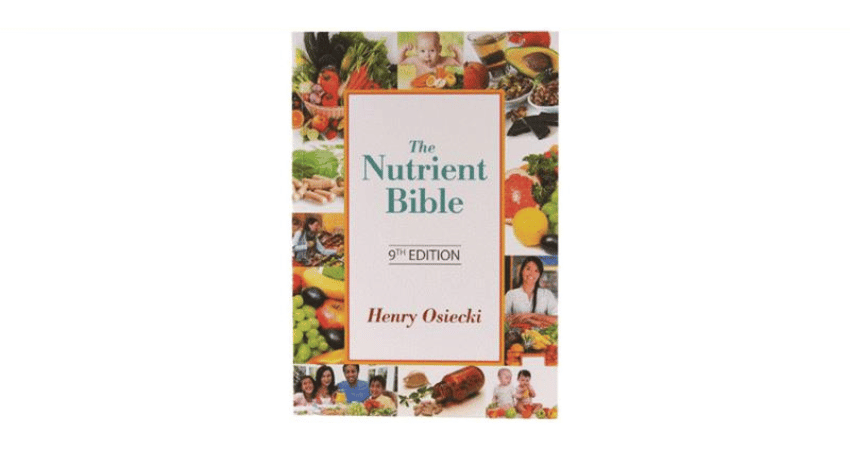
Osiecki also discusses how nutrient deficiencies and imbalances can contribute to various health issues.
The Engine 2 Diet by Rip Esselstyn
The Engine 2 Diet by Rip Esselstyn is a plant-based, whole-food diet plan designed to improve health, reduce cholesterol, and promote weight loss.
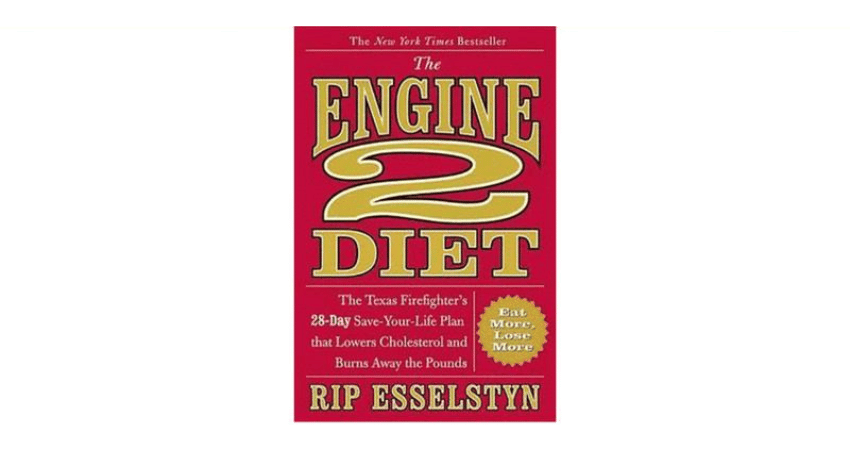
Esselstyn outlines a 28-day plan with practical advice on meal planning, shopping, and cooking, making it easy for readers to adopt this heart-healthy lifestyle.
Best Nutrition Books for Nutritionists
Reading a Nutrition Book plants a seed for lifelong health; nurture it and reap the benefits. In this section, we talk about the books geared towards nutrition professionals. These picks are rich in scientific data, case studies, and advanced nutritional concepts. Here's a closer look:
Advanced Nutrition and Human Metabolism by Sareen S. Gropper
Advanced Nutrition and Human Metabolism by Sareen S. Gropper delves into human nutrition's biochemical and physiological aspects. Targeted toward students and professionals in nutrition, dietetics, and health sciences, the book explores how nutrients are digested, absorbed, and metabolised in the body.
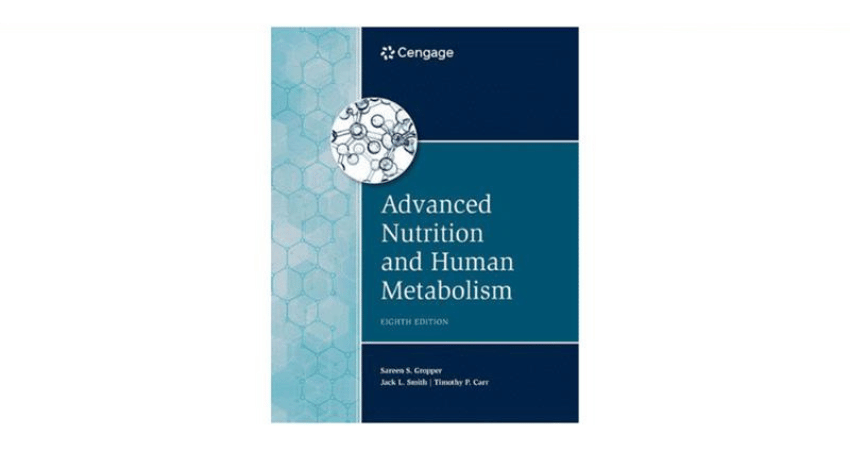
Gropper covers essential topics such as macronutrient metabolism, micronutrient functions, energy balance, and the regulation of metabolic pathways.
Nutrition Therapy and Pathophysiology by Marcia Nelms
Nutrition Therapy and Pathophysiology by Marcia Nelms is a foundational textbook that bridges the gap between nutrition science and clinical practice. It comprehensively examines how nutrition therapy can manage and treat various diseases and health conditions.
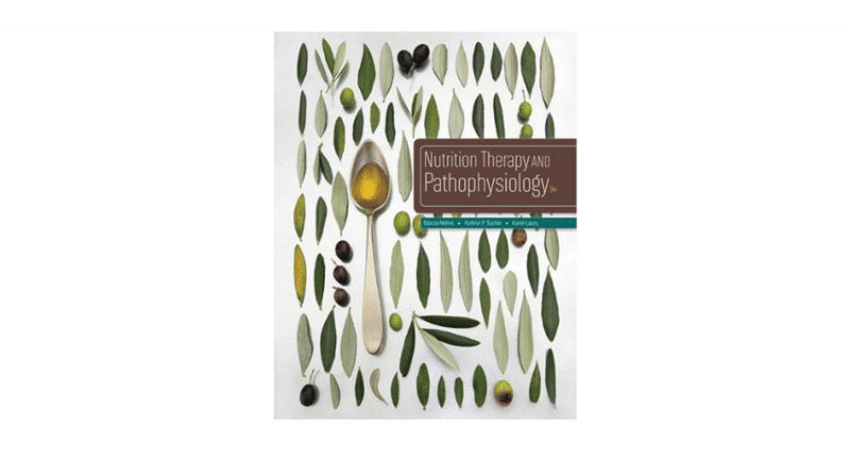
With practical case studies, evidence-based guidelines, and detailed explanations, Nutrition Therapy and Pathophysiology is an essential resource for students, dietitians, and healthcare professionals looking to apply nutrition science to real-world clinical scenarios.
Integrative Nutrition: A Whole-Life Approach to Health and Happiness by Joshua Rosenthal
Integrative Nutrition: A Whole-Life Approach to Health and Happiness by Joshua Rosenthal presents a holistic approach to health, focusing on the interconnectedness of nutrition, lifestyle, and overall well-being. Rosenthal emphasises the importance of what we eat and factors like relationships, career, physical activity, and spirituality in achieving proper health and happiness.

The book covers a wide range of dietary theories, helping readers understand that there is no one-size-fits-all solution to nutrition.
Start your journey to inner peace and physical wellness—join our transformative Yoga Training today!
The Art and Science of Low Carbohydrate Living by Jeff S. Volek and Stephen D. Phinney
The Art and Science of Low Carbohydrate Living by Jeff S. Volek and Stephen D. Phinney talks about implementing low-carbohydrate diets for optimal health. Written by two experts in nutrition and metabolic health, the book explores the science behind carbohydrate restriction and its benefits for managing conditions like obesity, diabetes, and metabolic syndrome.

Ideal for health professionals and individuals, The Art and Science of Low Carbohydrate Living combines scientific research with real-world application for those seeking to improve their metabolic health through low-carb living.
Functional Medicine for Inflammatory Disorders by Alex Vasquez
Functional Medicine for Inflammatory Disorders by Alex Vasquez provides an in-depth exploration of how functional medicine principles can be applied to the prevention and treatment of chronic inflammatory conditions.
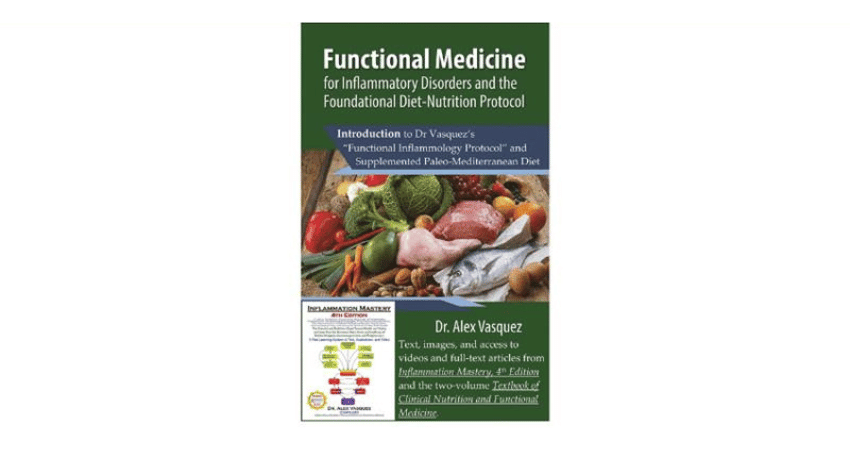
With its focus on a systems-based, integrative approach, this book is an invaluable resource for healthcare professionals and individuals seeking to address chronic inflammation through functional medicine.
Nutritional Epidemiology by Walter Willett
Nutritional Epidemiology by Walter Willett is a seminal text that examines the relationship between diet and disease, focusing on the methodologies used to study these connections in populations.
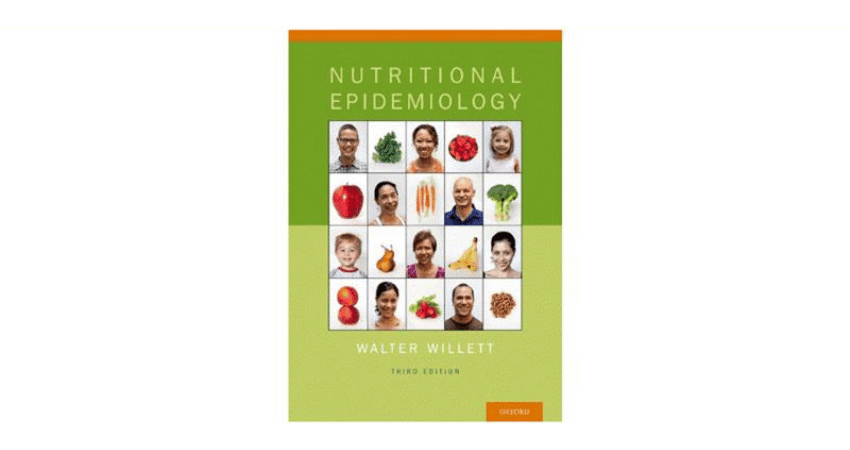
Nutritional Epidemiology is an essential resource for researchers, public health professionals, and students looking to understand the complexities of studying diet-disease relationships and the role of nutrition in public health policy.
Sports Nutrition: A Handbook for Professionals by Christine Rosenbloom and Ellen Coleman

Sports Nutrition: A Handbook for Professionals by Christine Rosenbloom and Ellen Coleman is tailored to the distinctive nutritional needs of athletes and active individuals. The book offers evidence-based advice on how to fuel the body for optimal performance, recovery, and overall health.
Designed for sports dietitians, fitness professionals, and coaches, this handbook also addresses special considerations such as working with youth athletes, ageing athletes, and individuals with specific dietary needs.
The Blue Zones Solution by Dan Buettner
The Blue Zones Solution by Dan Buettner explores the lifestyles and eating habits of communities known for their longevity and vitality, referred to as "Blue Zones." These regions include Okinawa, Japan, and Sardinia, Italy, where people regularly live for 100 years and beyond.
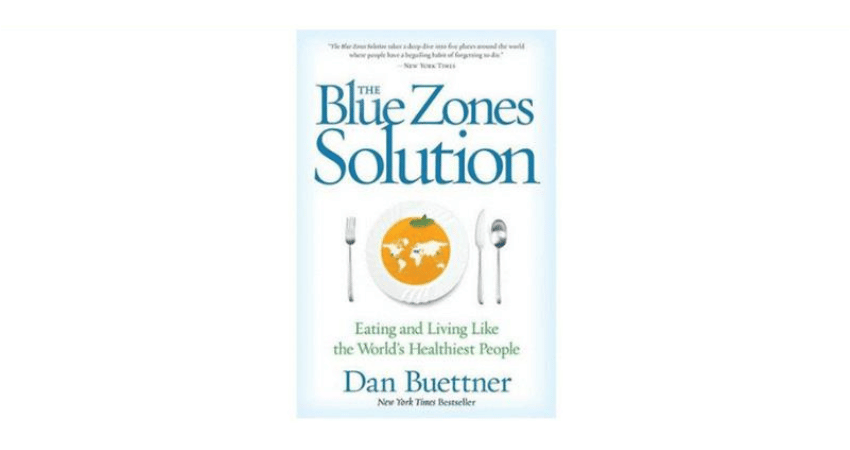
The Blue Zones Solution provides a roadmap for living a longer, healthier, and more fulfilling life by adopting the habits of the world's longest-living populations.
The Science of Nutrition by Janice J. Thompson and Melinda Manore
The Science of Nutrition by Janice J. Thompson and Melinda Manore provides an evidence-based and comprehensive overview of nutrition principles and how they impact health and well-being.

It is a useful resource for students, healthcare professionals, and anyone interested in comprehending the science behind nutrition and making informed dietary decisions.
Nutrition and Diagnosis-Related Care by Sylvia Escott-Stump
Nutrition and Diagnosis-Related Care by Sylvia Escott-Stump is designed for healthcare professionals, particularly dietitians, offering evidence-based nutritional interventions tailored to specific medical conditions.
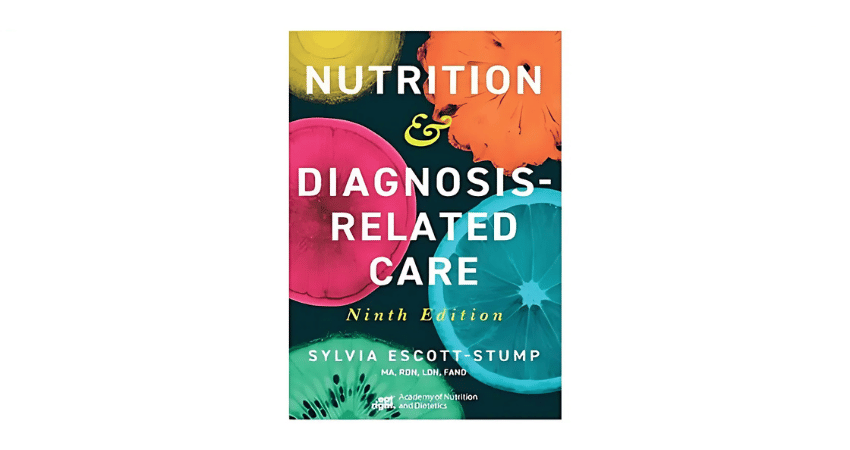
This book is ideal for professionals working in clinical settings, as it integrates medical nutrition therapy with treating various conditions, from diabetes and cardiovascular diseases to gastrointestinal disorders and critical care.
The Whole30: The 30-Day Guide to Total Health and Food Freedom by Melissa Hartwig Urban and Dallas Hartwig
The Whole30: The 30-Day Guide to Total Health and Food Freedom by Melissa Hartwig Urban and Dallas Hartwig is a transformative program designed to reset eating habits and improve overall health in 30 days.

The book outlines a strict, whole-foods-based diet plan that eliminates sugar, grains, dairy, legumes, and processed foods to reduce inflammation, improve digestion, and restore a healthy relationship with food.
Books Honourable Mentions
These books deserve mention for their unique angles on Nutrition. They're suitable for both professionals and newbies. Here's a detailed explanation:
The China Study by T. Colin Campbell
Based on research examining dietary patterns and disease rates in rural China, Colin Campbell explains that a whole-food, plant-based diet can significantly decrease the risk of chronic diseases like heart related issues, diabetes, and cancer.
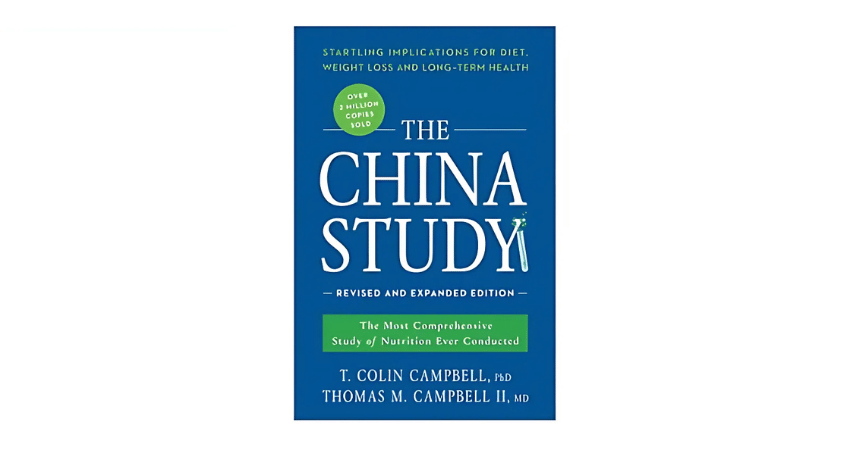
With scientific rigour and a focus on public health, The China Study offers compelling evidence for the power of nutrition in preventing and reversing major health issues, making it a cornerstone for those interested in plant-based eating and nutritional science.
Mindless Eating: Why We Eat More Than We Think by Brian Wansink
Mindless Eating: Why We Eat More Than We Think by Brian Wansink explores the unconscious factors that influence our eating habits and lead us to consume more food than we realise.

Drawing on extensive research in behavioural science and psychology, Wansink reveals how environmental cues, portion sizes, food packaging, and social settings can subtly affect how much we eat.
Gut: The Inside Story of Our Body's Most Underrated Organ by Giulia Enders
Gut: The Inside Story of Our Body's Most Underrated Organ by Giulia Enders is a fascinating and accessible exploration of the gut, one of the human body's most complex and vital organs.

Enders also offers practical advice on maintaining a healthy gut through lifestyle choices. Gut is an engaging and insightful book highlighting gut health's critical importance in overall well-being.
The FastDiet by Michael Mosley and Mimi Spencer
The FastDiet by Michael Mosley and Mimi Spencer introduces the concept of intermittent fasting, precisely the 5:2 approach, as a strategy for weight loss and improved health. The book advocates eating normally five days a week and significantly reducing calorie intake (to around 500-600 calories) for two non-consecutive days.
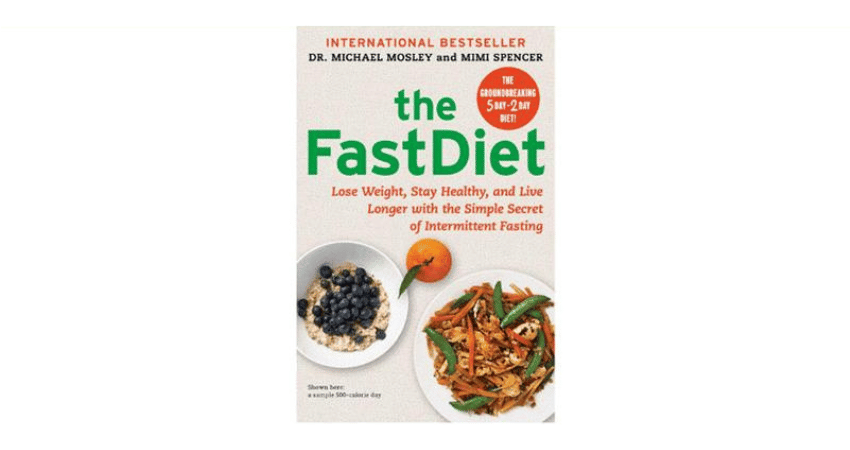
Backed by scientific research, Mosley and Spencer explain how intermittent fasting can help burn fat, lower blood sugar levels, decrease inflammation, and improve overall longevity.
Eat Right 4 Your Type by Peter J. D'Adamo
Eat Right 4 Your Type by Dr. Peter J. D'Adamo introduces the concept of tailoring one's diet based on one's blood type, suggesting that different blood types process foods uniquely. D'Adamo argues that eating specific foods that align with an individual's blood type—A, B, AB, or O—can improve digestion, boost energy levels, and promote overall health.

The book provides detailed dietary recommendations for each blood type, including foods to embrace and avoid and exercise and lifestyle advice.
The Alkaline Diet for Beginners by Jennifer Koslo
The Alkaline Diet for Beginners by Jennifer Koslo offers a simple and practical introduction to the alkaline diet, which is based on the idea that consuming more alkaline-forming foods, like fruits, vegetables, and whole grains, while reducing acidic foods such as meat, processed foods, and sugar, can promote better health.
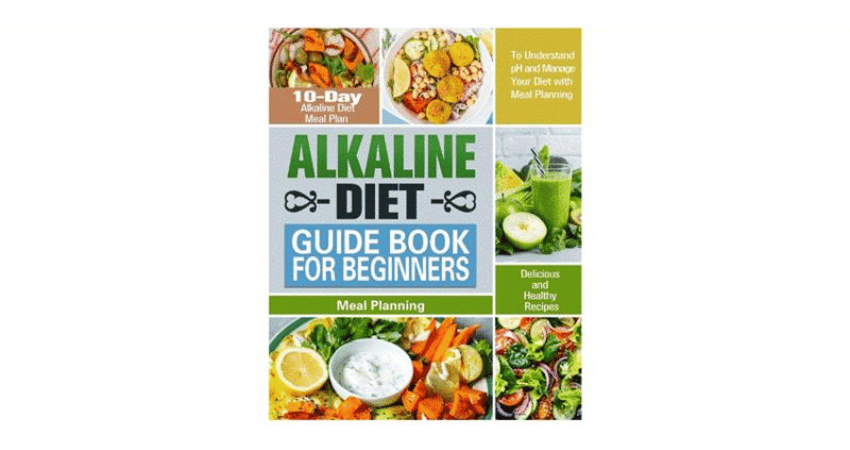
The book provides:
a) Meal plans.
b) Easy-to-follow recipes.
c) Tips for making the transition to an alkaline-focused lifestyle.
Wheat Belly by William Davis
Wheat Belly by Dr William Davis challenges the role of wheat in modern diets, arguing that the consumption of genetically modified wheat is a significant contributor to obesity, diabetes, and other chronic health issues.
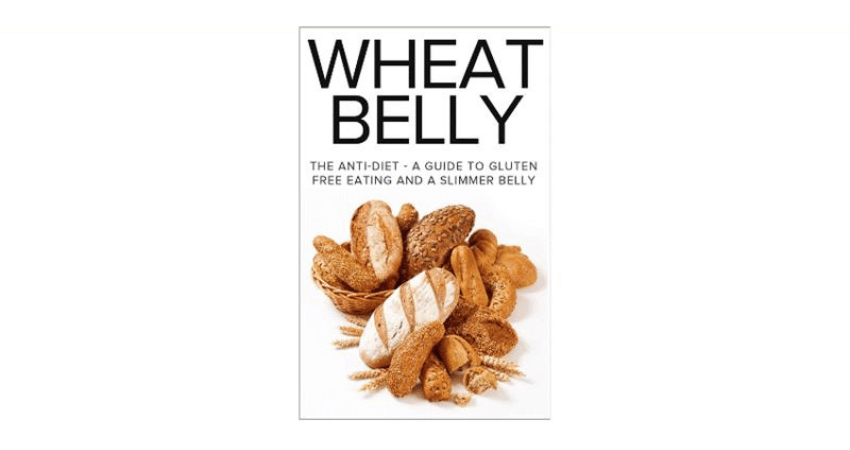
The book advocates for eliminating wheat from the diet to improve digestion, reduce inflammation, and promote weight loss.
Food for Life: The New Science of Eating Well by Tim Spector
In Food for Life, Tim Spector delves into the latest breakthroughs in nutritional science, offering a practical guide to understanding the new principles of healthy eating.

Drawing from his extensive experience in cutting-edge nutritional research, Spector dismantles longstanding food myths and provides transparent, evidence-based advice on how to eat for optimal health, well-being, and longevity.
Unprocessed: How the Food We Eat Is Fuelling Our Mental Health Crisis by Kimberley Wilson
In Unprocessed, Wilson explores the intricate connections between nutrition, mood, and well-being, revealing how blood sugar spikes can affect emotions and how nutrient deficiencies may contribute to anger.

Drawing from her experience as a chartered psychologist working in prisons, schools, and hospitals, Wilson compellingly highlights nutrition's crucial yet often overlooked role in addressing the mental health crisis.
The Science of Nutrition: Debunk the Diet Myths and Learn How to Eat Well for Health and Happiness by Rhiannon Lambert
In The Science of Nutrition, Rhiannon Lambert provides clear, concise answers to common questions about nutrition, health, and dieting.
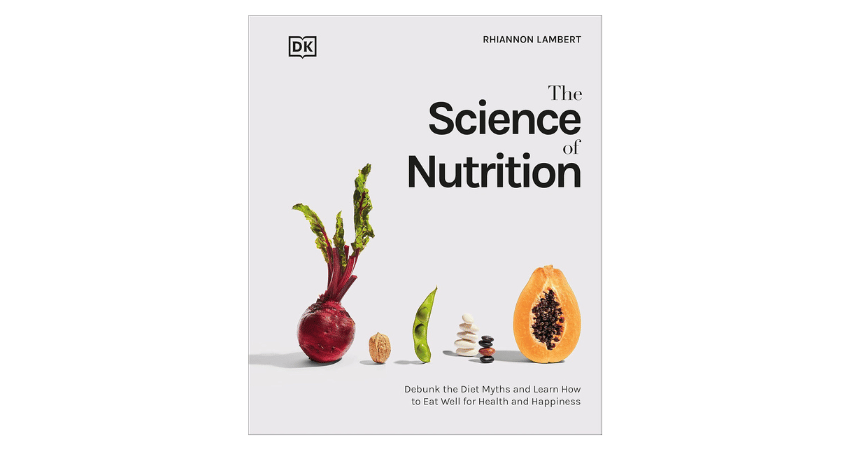
Structured in a Q&A format with easily navigable sections, this book is an excellent introduction for anyone looking to learn more about eating for both health and happiness.
The Clever Guts Diet: How to Revolutionise Your Body From The Inside Out by Dr Michael Mosely
In this insightful book, Dr. Michael Mosley talks about the latest research on the gut microbiome. He explains how the increase in ultra-processed foods and the overuse of antibiotics are depleting beneficial gut bacteria, leading to rising rates of obesity, food intolerances, and allergies.

Clever Guts is filled with delicious recipes, simple meal plans, and evidence-based advice, equipping readers with the knowledge and tools to support gut health and overall well-being.
Ultra-Processed People: Why Do We All Eat Stuff That Isn't Food… and Why Can't We Stop? by Chris van Tulleken
In Ultra-Processed People, Chris Van Tulleken investigates the alarming rise of ultra-processed foods, revealing that the average person in the UK now consumes 56% of their calories from these industrially manufactured products loaded with preservatives, sweeteners, and stabilisers.
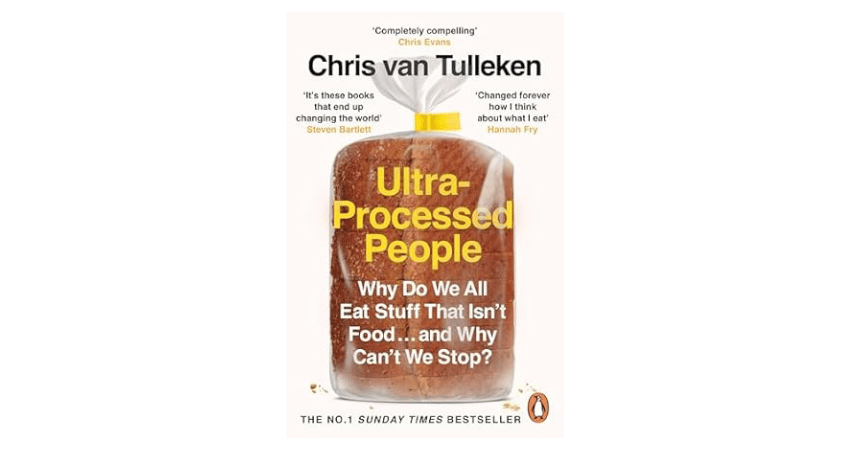
Van Tulleken delves into the profound impact these foods have on our bodies, health, weight, and even the planet—offering insights that may be both eye-opening and unsettling.
Conclusion
lIncorporating nutrition knowledge into your life can transform your health and well-being. These Best Nutrition Books offer invaluable insights and practical strategies to guide you toward healthier choices. Whether seeking weight management, improved vitality, or overall wellness, these resources provide the foundation for a nourishing and balanced lifestyle. Start your journey to optimal health today
Ready to take your health to the next level? Register for our Nutrition and Fitness Training today!
Frequently Asked Questions

The highest nutritionist level is often a Registered Dietitian Nutritionist (RDN) or a Certified Clinical Nutritionist (CCN). These professionals hold advanced degrees, complete rigorous training, and meet certification requirements to provide expert-level nutrition counselling and care.

Yes, becoming a nutritionist is a rewarding career. It offers opportunities to improve people's health and well-being. It combines science and personalised care, and there is growing demand in various fields, such as healthcare, wellness, sports, and public health.

takes global learning to new heights, offering over 30,000 online courses across 490+ locations in 220 countries. This expansive reach ensures accessibility and convenience for learners worldwide.
Alongside our diverse Online Course Catalogue, encompassing 19 major categories, we go the extra mile by providing a plethora of free educational Online Resources like News updates, Blogs, videos, webinars, and interview questions. Tailoring learning experiences further, professionals can maximise value with customisable Course Bundles of TKA.

The Knowledge Academy’s Knowledge Pass, a prepaid voucher, adds another layer of flexibility, allowing course bookings over a 12-month period. Join us on a journey where education knows no bounds.

The Knowledge Academy offers various Healthy Lifestyles Training, including the Nutrition Course, Active and Healthy Lifestyles Training, and Yoga Course. These courses cater to different skill levels, providing comprehensive insights into How to Practice Mindfulness.
Our Health & Safety Blogs cover a range of topics related to Nutrition, offering valuable resources, best practices, and industry insights. Whether you are a beginner or looking to advance your Health and Safety knowledge, The Knowledge Academy's diverse courses and informative blogs have got you covered.
Upcoming Business Skills Resources Batches & Dates
Date
 Life Coach Training
Life Coach Training
Fri 17th Jan 2025
Fri 21st Feb 2025
Fri 4th Apr 2025
Fri 6th Jun 2025
Fri 25th Jul 2025
Fri 7th Nov 2025
Fri 26th Dec 2025







 Top Rated Course
Top Rated Course



 If you wish to make any changes to your course, please
If you wish to make any changes to your course, please


